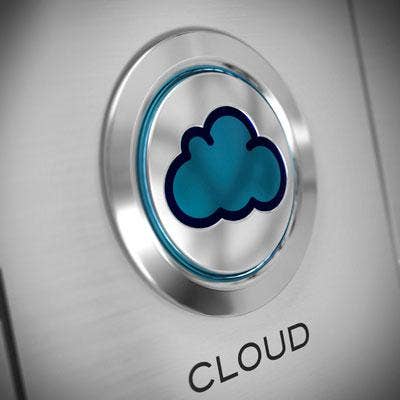Ingram Micro Cloud Leaders Answer Partner Cloud Questions

Confident About The Cloud
Ingram Micro Tuesday kicked off its Cloud Summit 2014 unveiling channel program updates, a partnership with Parallels, a revamp of its Cloud Marketplace and a plan to leverage its recent SoftCom acquisition rolling out its own hosted cloud services housed in its own data centers.
The news comes as the 34-year-old Santa Ana-Calif.-based Ingram Micro has been ramping up its cloud computing business alongside its peers Tech Data, Synnex and its 185,000 solution providers around the world (35,000 in the U.S.). We caught up with the $36.3 billion IT distributor's top cloud executives Renee Bergeron, vice president of cloud computing at Ingram Micro, and Nimesh Dave, Ingram Micro's executive vice president of Global Cloud Computing, and asked them how partners can win the cloud with Ingram Micro.

You say you have 4,000 channel partners using the Cloud Marketplace and working with the Cloud team -- describe your typical Ingram Micro cloud partner?
RB: What we are seeing is a typical Ingram Micro cloud partner does between 10 to 15 percent of their business in the cloud. Just under half of solution providers self-identify as cloud resellers. Three or four years ago, it was almost exclusively small partners. But what has been interesting is in the last nine to 12 months we are seeing the traditional larger reseller partners investing significantly in the cloud.
When you look at a partner like Accudata Systems, this is a large reseller that is now jumping into the cloud. They may have been a little bit slower up front, probably because they have very large and successful core technology practices that have been growing and haven't had the need to get ahead of the curve to differentiate. They are all now beginning to invest. We see many partners selling hosting service, and email and infrastructure products, from cloud partners like Amazon Web Services and Rackspace.

What is the timeline on the rollout of the services and products announced here at Ingram Micro Cloud Summit 2014?
RB: The next generation of the Cloud Marketplace will be available this quarter. When it launches, it will launch with the cloud reseller program, which is the program all resellers use today. In the third quarter we will launch the two new channel programs -- the cloud referral and the cloud white-label program.

With Arrow Electronics, Avnet Technology Solutions, D&H Distributing, ScanSource, Synnex, Tech Data and Westcon Group now in the cloud game, why Ingram Micro? What is the Ingram Micro advantage?
ND: We've outinvested every distributor in the world. Our recent acquisition of SoftCom and expanded relationship with Parallels are significant growth catalysts that will further enable us to scale globally. Ingram Micro is clearly differentiated by our people, process and platform.

Describe the cloud enablement efforts Ingram Micro is pushing out to its partners to get them up to speed with and getting involved in these programs?
RB: The new enablement programs are launching now. These are specifically tailored to the next-generation of IngramMicroCloud.com and how does a reseller leverage itself effectively in this marketplace. We are actually adding the last people to our enablement team now. They will be working with resellers this quarter to enable them on the new platform.
Training is something we have been making investments in for years. Some examples are education programs we developed three years ago for our channel partners to help them transform their business, for example, how to sell and how to incent their salespeople, and how to generate leads in the cloud. It's nothing new. Now our training is around transforming for the cloud.

Any metric you can share that shows Ingram Micro's stepped-up commitment to enabling the channel?
RB: We don't share any of those numbers specifically for the cloud. The only thing I can say is we have our global CEO (Alain Monie (pictured)) on main stage at this event committing to the cloud. He has said Ingram Micro will be continuing to develop cloud IP [intellectual property] and to bring all these solutions to the channel.

Talking to cloud reseller partners considering shifting business to Ingram Micro's cloud, they want to be convinced that you are as obsessed with security and disaster recovery as they are. They are afraid they will lose control over key business differentiators. How do you convince partners that you are as concerned as they are?
RB: Today we run the data centers out of SoftCom and we actually have a multiple diverse data center architecture housed in co-located sites. We have the highest degrees of redundancies and highest degrees of fault tolerance. These guys at SoftCom, they are relentless. These guys are born from engineering. They have 15 years of experience. They are hosting quite a considerable amount of virtual private servers today. They are hosting quite a lot of Microsoft Exchange mail. They are already a hosting firm. We are not trying to invent this ourselves. We have a group of people who have been doing this for a decade.

Are you as obsessive about security?
RB: Yes, we are obsessive. Not all customers will come to us through SoftCom -- we know that. We are also confident about the services that are on the Ingram Micro line card. We have partners that come to us and say, 'Why should we trust this solution? ' We answer that question by walking them through our due diligence processes. Then we walk them through the actual due diligence that we did for this vendor. And we tell them what we found. We tell them how the solution has been built and what the business continuity solution is. That allows vendors to get comfortable.
ND: Think about another piece of mechanics. We are the supply chain --- or the just-in-time supple chain -- for pretty much a good percentage of the total technology spend out there. The way we architect systems and drive systems are for real-time and 7-x-24 use. Just like we do for our physical goods movement area, we have those systems and process in place, we have same robustness in our cloud business. And that's what customers can expect.

What is the pricing around your new hosting options and white-glove services?
RB: What partners can expect from us is pricing that will give them solid margins and allow them to sell competitively. When we on-board a vendor service provider, we make sure that an end customer cannot buy directly from that cloud service provider at a better price than they can do it through the channel.
The channel equity, the channel parity, is absolutely crucial in every single solution that we take to market.

Ingram Micro announced new hosted services powered by your own SoftCom that include virtual private servers, web hosting and hosted exchange. Partners are wondering how Ingram Micro can be vendor impartial when it now competes with its own partners? Partners say there is an inherent conflict of interest.
RB: Reseller partners like having options. We aren't telling them, 'Take the Ingram solutions.' We are saying, 'Here are the choices that you have and here is the merit of every single solution. '

You are not going to drive business to your own solutions over your competitors?
RB: No, Ingram Micro's model doesn't exist if we do that. We are there for partners to give them options. We are there to advise them. We are rolling new [SoftCom] solutions where we see opportunity for our channel partners. Web hosting is a great example. It's a core expertise of SoftCom that we are taking to market. We had no web hosting partnership in that area.
ND: Web hosting and virtual private servers is a core competency of SoftCom. There are a lot of options with hosted Exchange. We let the customer decide what they want to purchase. We will never force Rackspace or Intermedia over our hosted Exchange. The customer will decide. That's why they buy from us. They always have a choice.

Ingram Micro's new white-glove services offer single-pane-of-glass access to management tools for business sales, technical sales engineering, migration and on-boarding, service desk and remote infrastructure management. Partners are skeptical a one-size-fits-all approach is best and fear losing granular control.
ND: I've personally used them all. It gets down to preference. You have to separate functionality from ergonomics. Ergonomically, with Ingram Micro's solution, we can customize any view you want. But functionality is defined based on the service provisioning package and the API you have. What data you display is up to you.
RB: As a reseller, let's say that one of the services out there has a little bit more granularity than Ingram does. That minimal incremental level of information you may get from another cloud service provider is far outweighed by the Ingram Micro solution, where you can do all the cloud service provider heavy lifting in one place.

How are partners going to be successful with Ingram Micro? What do they need to do in order to align themselves for success with Ingram Micro?
ND: Today, VARs gravitate toward technical competency. In the future, the VARs are going to be required to have significantly stronger sales and marketing competencies. Selling a service is not like selling a box. You'll hear a lot of VARs saying, 'Don't invest in brick and mortar, invest in services. ' What partners need to do is make a much deeper investment in sales, marketing and pre-sales.
Ingram Micro partners that are highly successful in adopting the hybrid cloud -- these guys have extremely good sales and marketing and pre-sales. It’s the last mile. They are very good at that.